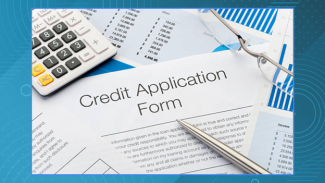
How to Check and Manage Your Credit Scores and Credit Reports
This article is related to an earlier article posted by Eustace Advisors in August 2023, https://www.eustaceadvisors.com/blog/you-need-understand-how-credit-scores-and-credit-reports-are-used which provided background on credit scores and credit reports, explained how credit scores and reports are used and how they may impact you, and offered suggestions related to credits scores and credit report. One of the suggestions in the August 2023 article was to check your credit score and credit reports at least once per year, which is the focus of this article.
This article includes pointers to helpful online resources to use when gathering and reviewing your credit scores and credit reports and correcting or freezing your credit reports. Rather than repeat the information found at those websites in this article, we point you to the resource.
Important Notes Before You Start
- Your personal information is required to gather your credit scores and credit reports, so ensure that you are using a secure network to submit the requests and are working with a validated source of credit-related information such as those listed below.
- To get started, you do NOT have to check all of your credit scores and credit reports. As noted below, we encourage you to start by checking your FICO credit score and one of the primary credit reports.
Topics Covered in This Article
- Definitions and background information.
- How to retrieve your credit scores and credit reports.
- Actions to take if you find errors in your credit report.
- What to do if you believe you are the victim of Identity Theft.
- How to freeze your credit information.
Definitions: Credit History, Credit Report and Credit Score
Your credit history consists of information such as: 1) how many credit accounts you have had, both open and closed, 2) what types of credit accounts they are, 3) how much you owe on each account, and 4) your payment history.
Your credit report will include information related to your credit history, along with personal identifying information such as current and previous addresses, date of birth, SSN, employment history, credit account specifics and recent bankruptcies. Note that your credit report will typically not include your credit score.
Credit reports are compiled by companies called credit bureaus. Equifax, Experian and TransUnion are the three major credit bureaus in the U.S.. Information in each bureau’s credit reports might come from different sources, which can result in subtle differences in their contents.
A credit score is a number used to assess how likely a person is to repay borrowed money and pay bills, which is calculated based on information gathered from the credit-reporting agencies listed above and other sources. Two organizations dominate the credit scoring industry – FICO (Fair Isaac Corporation) and VantageScore. Both of these organizations use similar algorithms to calculate credit scores and use a credit score range of 300-850.
FICO offers several different credit scores, including the FICO 5 and FICO 8 scores.
- FICO 5 is more likely to be used by mortgage lenders and financial institutions that offer loans because the amount of credit being extended is typically large. FICO 5 relies solely on data from the credit reporting agency Equifax and is less forgiving of unpaid collection accounts and frequent late payments.
- Credit card companies more commonly use FICO 8. This is partly because it is more sensitive then FICO 5 to large credit card balances that are close to the card limits and is tougher on repeated late payments. FICO 8 uses data from all three major credit reporting bureaus: Equifax, Experian, and TransUnion.
VantageScore is based on a process defined by the three credit bureaus and uses a slightly different algorithm than the FICO scores. Since a wide majority of lenders use the FICO scores, I suggest you focus on these scores when checking yours.
Credit Score Ranges and Categories
|
Credit Category |
FICO range |
VantageScore range |
|
Excellent |
800-850 |
781-850 |
|
Very Good |
740-799 |
|
|
Good |
670-739 |
721-780 |
|
Fair |
580-669 |
661-720 |
|
Poor |
300-579 |
601-660 |
|
Very Poor |
|
300-600 |
How Do I Check My Credit Score?
There are many ways to get your credit scores. A simple option for checking your score is Experian, as they provide the FICO 8 credit score, and allow the score to be checked for free. Go to https://www.experian.com/consumer-products/free-credit-report.html. If you select this option, you can also get a copy of your Experian credit report.
Other options to get your credit score include:
- Equifax (https://www.equifax.com/personal/products/credit/free-credit-score/): not as simple to access a credit score as Experian but is easier than TransUnion. Equifax provides credit scores based on the Vantage 3.0 model to consumers.
- TransUnion (https://www.transunion.com/): they provide credit scores based on the Vantage 3.0 model, and I find it difficult to get a free credit score from them. They steer you down the path of purchasing their credit monitoring service when you try to access your credit score on their website.
- Your financial service provider: many credit card companies and some lending institutions have begun providing credit scores to their customers on a monthly basis. The score is usually listed on your monthly statement or can be found by logging into your account online.
- Use a credit score service such as myFICO (https://www.myfico.com/products/fico-score-plans), NerdWallet (https://www.nerdwallet.com/lp/free-credit-score) or Credit Karma (https://www.creditkarma.com/free-credit-score). These services, and others like them, advertise a “free credit score.” The catch is that you will often have to sign up to receive emails from the service or their advertisers, or the site may steer you to sign up for a credit monitoring service (or other financial services) with a monthly subscription fee in order to get your “free” score.
- Talk to a credit counselor: Non-profit credit counselors and HUD-approved housing counseling agencies can often provide you with a free credit report and score and help you review them.
If you believe your credit score does not accurately reflect your credit worthiness, the next step is to investigate your credit reports since your credit scores are dependent on your credit reports.
How to Access Your Credit Reports
To download and check your credit reports, the simplest option is to request free copies via this website: https://www.annualcreditreport.com/requestReport/landingPage.action.
Another option is to go to each credit bureau’s website and request a copy of your credit report directly from them. I prefer to use Experian’s site, as they leverage the FICO credit score and make it extremely easy to view, download and print your complete credit report.
- Experian (https://www.experian.com/consumer-products/free-credit-report.html).
- Equifax (https://www.equifax.com/personal/credit-report-services/free-credit-reports). You can get view your Equifax credit report directly from them via their myEquifax service, or they will route you to www.annualcreditreport.com.
- TransUnion. TransUnion redirects you back to https://www.annualcreditreport.com/ to get a free copy of their credit report for you.
What to Look For When Reviewing Your Credit Reports
It is particularly important to make sure your credit reports contain accurate information.
Personal Information
- Ensure that your name, address and date-of-birth are accurate.
- If employers are also listed, ensure you worked for all that are on the list. Do not be alarmed if some of your employers are not listed, as not all employers report information to the credit bureaus.
Incorrect reporting of account status
The open and closed accounts sections are especially important, and you want to scrutinize these closely. Accounts may include loans, mortgages and credit cards. In particular, check for:
- Accounts that do not belong to you.
- Sometimes, credit histories are mistakenly updated with information belonging to another person with the same or a similar name as yours.
- Accounts that may have been opened in your name as a result of identity theft.
- Accounts that are incorrectly reported as late or delinquent.
- Incorrect date of last payment, date the account was opened, or date of first delinquency.
- Accounts with an incorrect current balance or an incorrect credit limit.
- Closed accounts reported as open.
- The same account listed more than once (often with slightly different names). This happens most often in the case of delinquent accounts or accounts in collections.
- The responsibility noted for each account. Typically, this will be defined as “individual” if you are the sole owner of an account, “joint” if you share responsibility for the account, or “authorized user” if you are allowed to leverage an account owned by someone else.
- Errors that were previously corrected have reappeared.
Collections and Inquiries
This section of your credit report will summarize any accounts that were sent to a collection agency for resolution, and inquiries made to the credit agency by 3rd parties.
Public Records
Bankruptcy is the only public record that will appear on your credit report.
What To Do If You Find An Error in Your Credit Report(s)
If you find errors in your credit report, even simple typographical mistakes, it is important to get them corrected as quickly as possible as such errors can cause delays or issues when applying for credit, employment or insurance.
A good starting point to resolve errors on your credit report is to follow the instructions provided on the particular bureaus’ website to file a dispute and track resolution of the issue. The credit bureaus are obligated to address such a dispute within 30 days and provide feedback to the originator of the dispute.
If you have filed a dispute and do not get the resolution you had hoped for, you should then contact the source of the disputed information directly. If the creditor agrees that a mistake has been made, they can contact the credit reporting agencies to have the information deleted or updated. If the creditor disagrees with your dispute, you can add a consumer statement of explanation to your credit report to provide additional insight which may help a lender who is reviewing your credit file understand any extenuating circumstances that may apply.
Freezing Your Credit Information
A security freeze can be placed to help prevent the inappropriate use of your personal information to apply for credit, and to protect yourself from further credit fraud if you are the victim of identity theft (see next section). With personal data breaches occurring on a frequent basis, I believe most consumers should freeze their credit information as a precautionary measure.
A security freeze blocks most companies from accessing your credit file for the purpose of extending additional credit; however, certain entities can still access your credit file even when it is frozen, including:
- You.
- Existing creditors or debt collectors acting on their behalf.
- Government agencies responding to a court order, subpoena or search warrant.
- Insurance companies that are accessing your report for the purpose of insurance underwriting.
- Utility companies.
- Debt portfolio evaluators or other forms of account review.
- Anyone accessing your credit report for employment, tenant or background screening purposes.
When you freeze your credit, you are still able to submit a loan or credit application to a potential lender, but you must unfreeze your credit file in advance of the date you plan to process your credit application to allow the creditor to access your credit information.
When you freeze your account through a specific credit bureau such as Experian, you freeze only that bureau’s credit file. To freeze your credit file at the other credit bureaus such as Equifax and TransUnion, you need to contact each one individually.
What if You are a Victim of Identity Theft?
If you find suspicious information on your credit report and believe you are a victim of identity theft or fraud, take these steps:
- File a report with your local police department or the Federal Trade Commission (FTC). A website affiliated with the FTC, https://www.identitytheft.gov/#/, defines a process for dealing with identity theft.
- Contact any lenders and credit card companies that have reported accounts you do not recognize in your credit report. Explain that you are a victim of identity theft and ask that they close the unauthorized accounts, absolve you of responsibility for charges made and remove related information from your credit files. You can also ask that they refrain from furnishing further information about these accounts to any credit reporting agency. The FTC provides a letter template you can use to submit such a request in writing.
- Contact any credit reporting agency where the fraudulent accounts appear to notify them of the fraud and begin the dispute process. You may be asked to provide documentation that supports the dispute.
Other Suggestions
- Several months before requesting a loan or new credit card, shopping for insurance, or applying for employment or apartment housing, review your credit score and credit report so you understand any potential issues before they arise and can explain them if necessary.
People often discover issues in their credit report when a lender or credit card company runs a credit check as part of a loan or card application. You can dispute the information at that time, but that will typically put the credit approval process on hold which may prevent you from being approved for the loan until the dispute process is complete.
- If your credit score falls in the Fair, Poor or Very Poor ranges, define a plan to boost your score. There are many online resources available to help in this effort; Experian offers guidance at: https://www.experian.com/blogs/ask-experian/ways-to-improve-credit/.
Resources
- Eustace Advisors Article – “Why Monitoring Your Credit Report and Score is Important”: https://www.eustaceadvisors.com/files/eustace_advisors_article_20230807_why_monitoring_your_credit_report_and_score_is_important.pdf.
- https://www.consumerfinance.gov/consumer-tools/credit-reports-and-scores/
- https://www.usa.gov/credit.
- https://www.investopedia.com/ask/answers/112315/getting-free-credit-report-safe.asp.
- https://www.consumerfinance.gov/ask-cfpb/where-can-i-get-my-credit-scores-en-316/.
- https://www.annualcreditreport.com/index.action.
- https://www.investopedia.com/articles/credit-loans-mortgages/081416/fico-5-vs-fico-8-what-are-differences.asp.
*This content was developed from sources believed to be providing accurate information. The information provided is not intended as tax or legal advice, and readers are encouraged to seek advice from their own tax or legal counsel. Neither the information presented, nor any opinion expressed, constitutes a representation by us of a specific investment or the purchase or sale of any securities. Asset allocation and diversification do not ensure a profit or protect against loss in declining markets. This material was developed and produced by Eustace Advisors to provide information on a topic that may be of interest. Copyright 2024 Eustace Advisors.

